The Kaifeng Jews
This is a repost of a quick article I wrote elsewhere. Because of where I live I have to be careful where I share it, but I think I should post it here for the sake of having it somewhere I control.
This is the story of how I found, studied, and talked to the very small religious minority of the Kaifeng Jews. It was written for a different audience and is more casual in tone than what I usually post here.
We went looking for whatever is left of the Kaifeng Jews several years ago. The story of the Kaifeng Jews is really fuzzy, but after that weekend I believe the story is generally more or less true, and when studying religion the specific history and the story of the people themselves if often of equal importance, though I really do believe their story and the history are basically in agreement. Apparently, about a thousand years ago groups of Jews were pushed out of Europe and the Middle East during the crusades, there was obviously nowhere they could go West, so they went East. A small group of them, either by land or by boat (or both) ended up very far east in China and settled in Kaifeng. They weren’t a large group, but they were large enough to stick together in a small community, but over a thousand years they mostly became indistinguishable from other Chinese people except for the fact that they were Jewish. There are artifacts, scrolls, large stones with writing that basically say “we were here” and pieces of a synagogue that have been recovered. Some of them are on display in a museum in Canada, others are kept (but not displayed) in a museum in China, but probably most importantly there were people left who were still practicing Jews when these things were discovered (mostly in the early 20th Century.)
A lot happened in China over the last hundred years though and it became pretty hard to find a lot of solid information about what happened to them since then. People used to be able to find them easily, but since the 2010s, to be straightforward, they have been quietly pushed underground and now finding them isn’t easy, let alone modern information about them now in the 2020s . There’s enough information about who they were, but not much about what they are now or even if they really still exist other than some stories of people saying “yeah my grandma didn’t eat pork but she wasn’t a Muslim, never understood that.”But we had a general area to go looking around in.
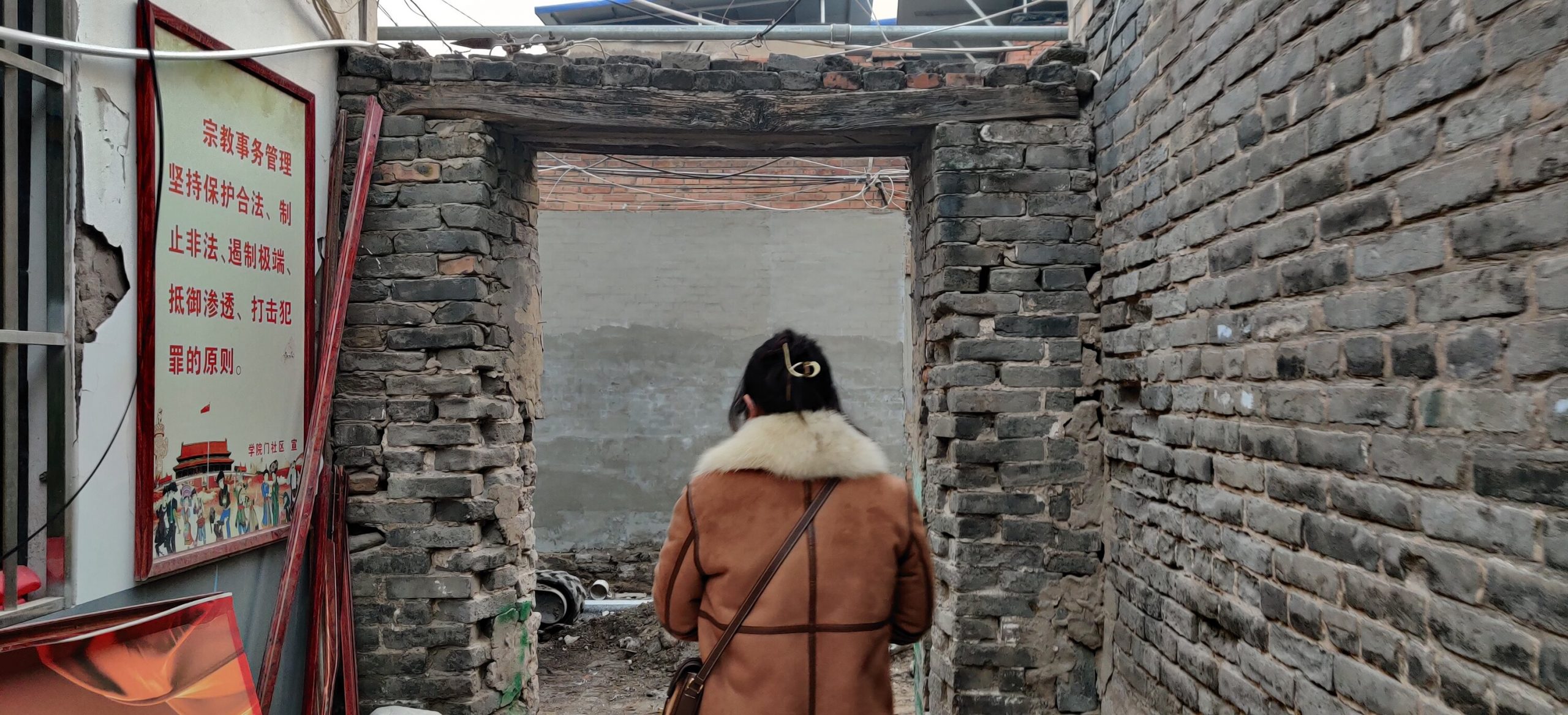
We were hoping we could find maybe an old star of David or a mezuzah on an old door that no one really noticed enough to take down. The whole thing started off a little sketchy, the area isn’t a major part of the city but just an old part of town Hui people live in. We had to get through a boarded-up alley, and honestly I thought we were going to end up getting in trouble. Eventually though, we found a guy, and when we told him what we were looking for, and him questioning my fiancee out of fear that she was a party member and someone he should be careful around, he answered back “shalom” and said we could follow him.
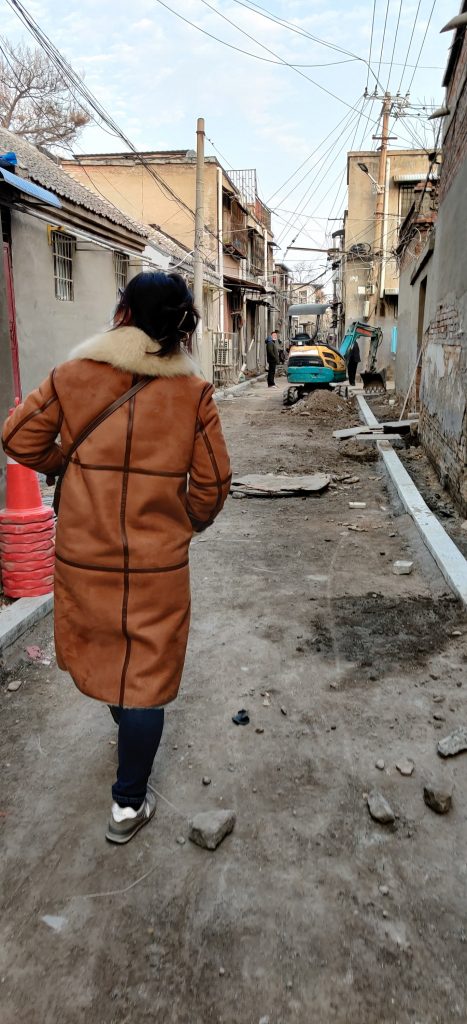
He took us to what was left of the old synagogue. It was really just one small room kept in the back of some newer additions that used to be the small top left part of a much larger synagogue.
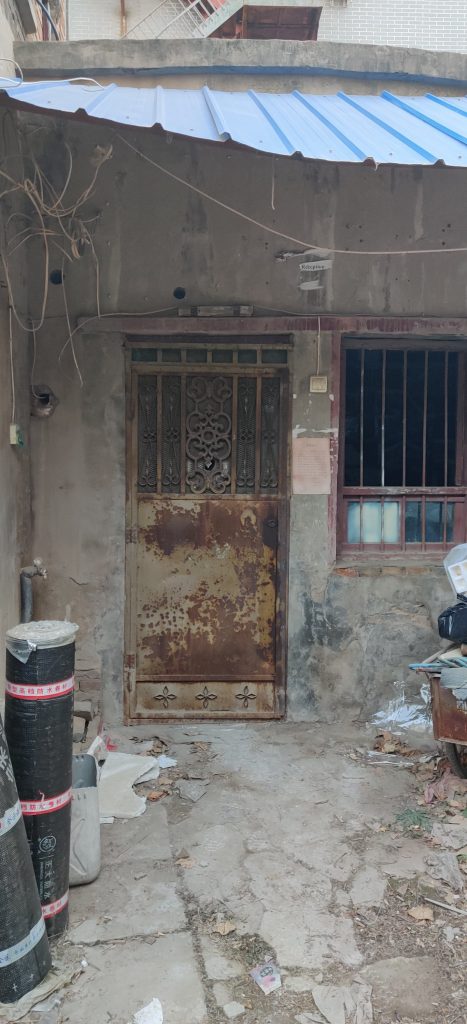
And he started explaining the story. So, for the most part, the story was his family story. Going back to one of his ancestors, I’m not sure how long ago (but at least hundreds of years ago), one of the Kaifeng Jews, he became a civil servant and eventually very rich. And that was how they built the synagogue.
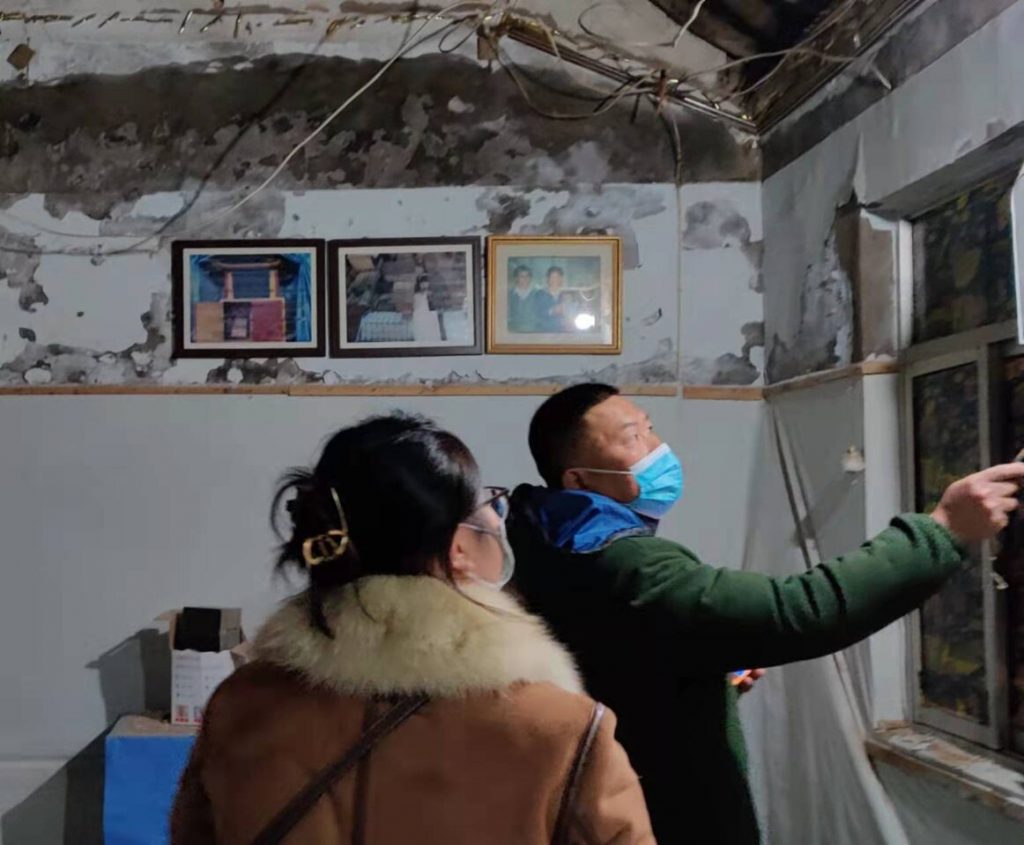
But the community was so small that it was never something preserved, I’m not sure when most of it was destroyed or fell apart but it was gone before we were able to have pictures of it or anything like that. The archaeology shows it was there though.
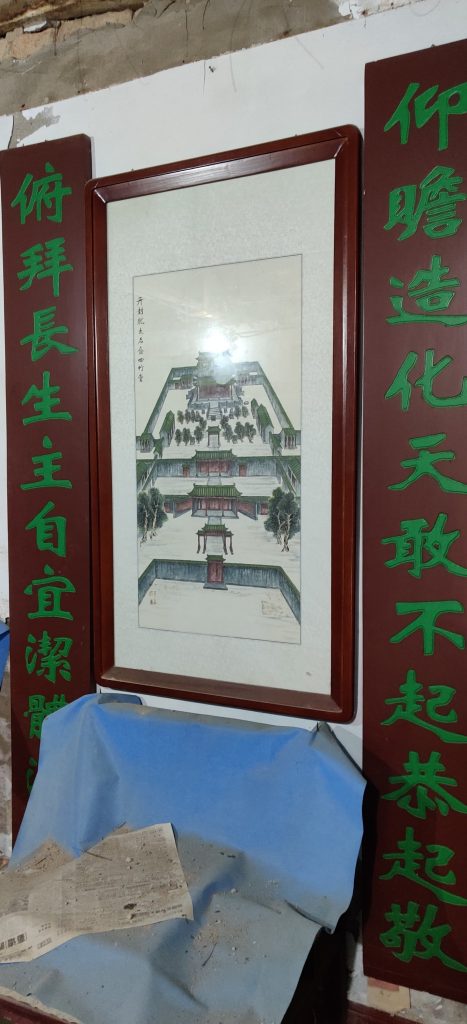
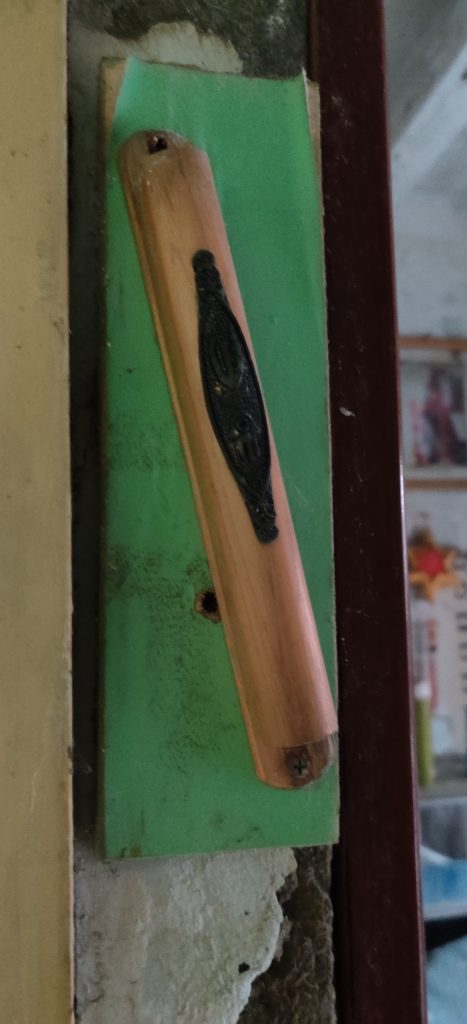
Eventually interest picked up when Western reporters in search of them first really started arriving in China in the early 20th century, and that was how those stones and artifacts ended up being preserved, something they had had for a long time but didn’t really have anyone who would listen to their story before.
There was a lot more to the story, going to his grandpa, his dad, etc but it’s very long. By the time he was alive the only thing really left was that one building and an old well the synagogue used. The government eventually made them fill in the well, but they took a picture right before they did it. We asked him about what happened to them, how many are left, but at this point it’s just his family, though is that really true? Or are there others who are more underground, or that he didn’t feel he was in a position to share?

It sounds like it’s just him and his wife, now who are open enough about it to talk to us and maintain what’s left of them (though I’m sure there are tons of people descended from them who just don’t know.) They used to be open about what they had but, the political situation changed, Judaism is not a recognized religion in China, and people from the government showed up one day and told them to take it all down, stop talking about this, stop showing that this is where the Kaifeng Jews are. That is why it’s very hard to find out anything recent about them now.
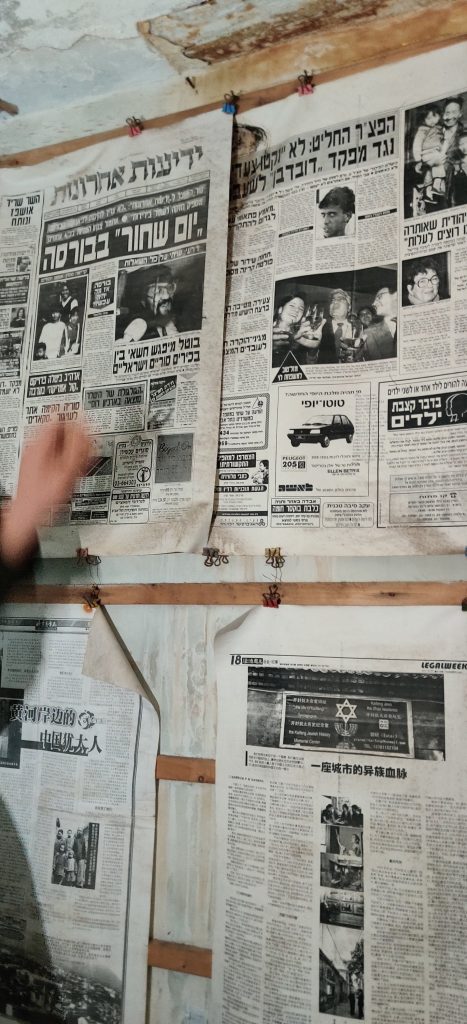
When we left he told us where some cameras were and that we should probably avoid looking at them. Somewhere along the way their family name was changed into a normal, Chinese family name. But, I got the impression that his family history was very important to him, and he just wanted it to not be forgotten.
So that’s how we met the very last of the Kaifeng Jews.
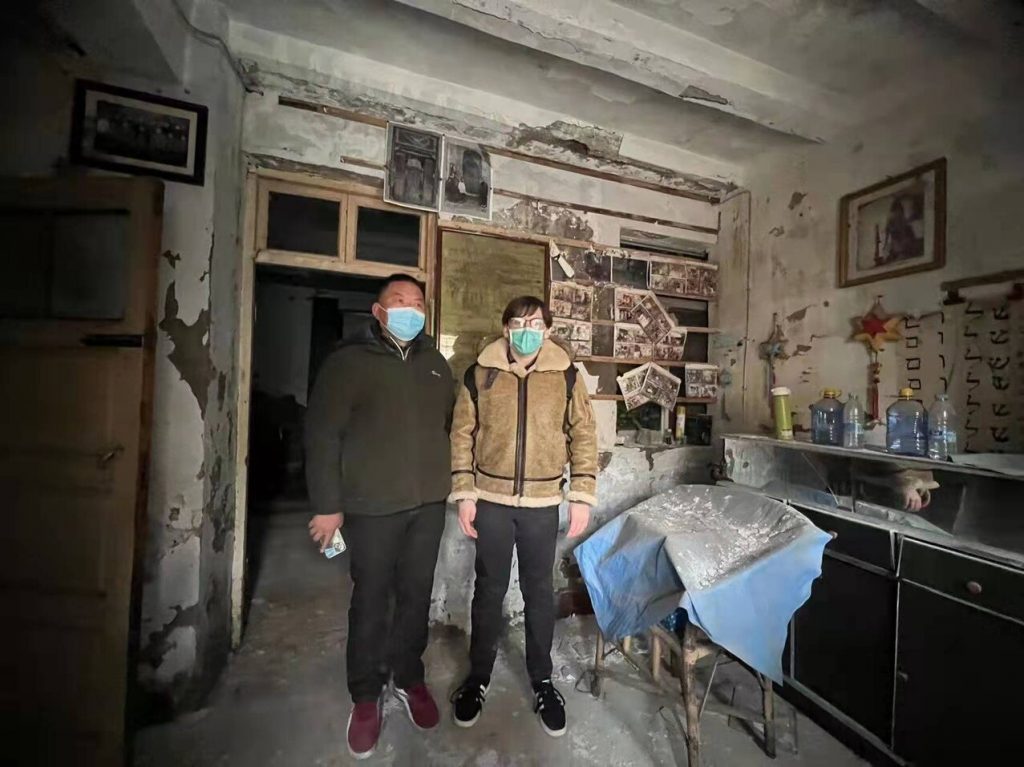
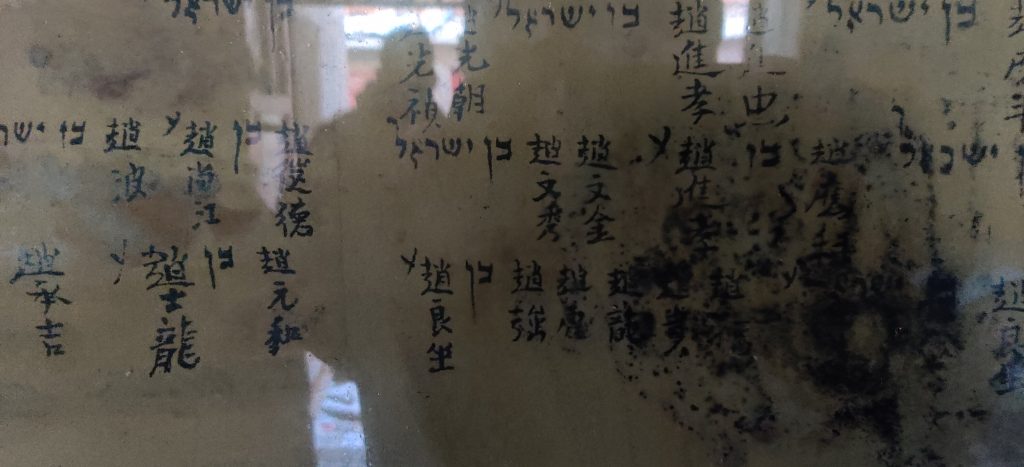
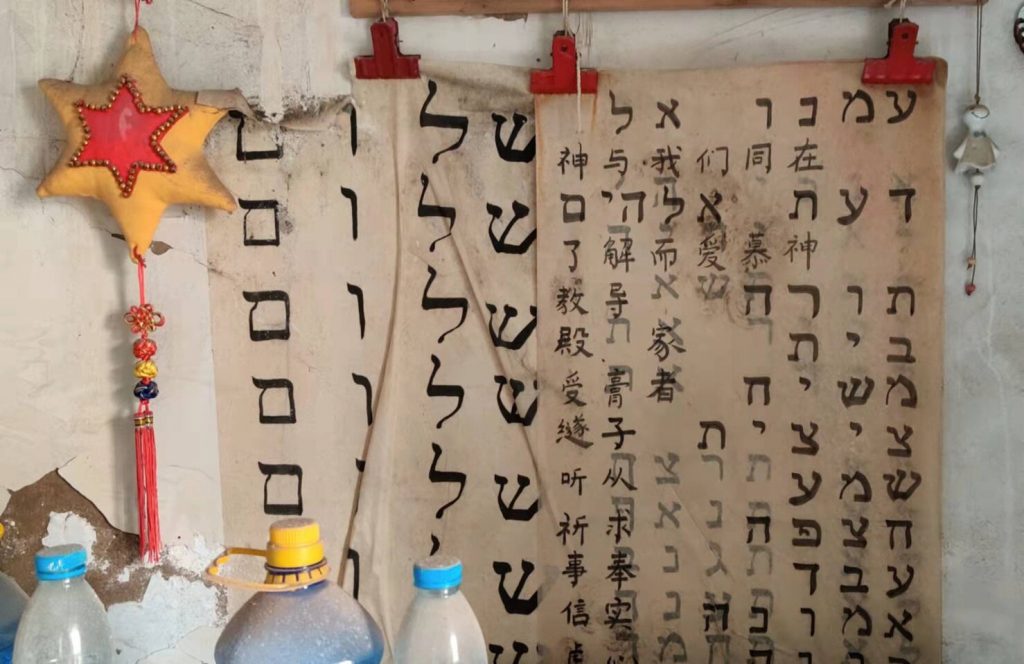
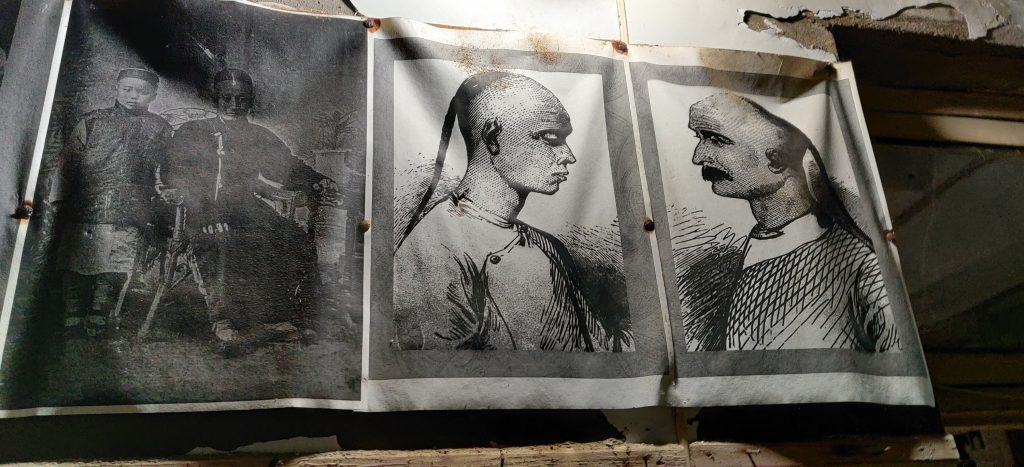
Leave a Reply